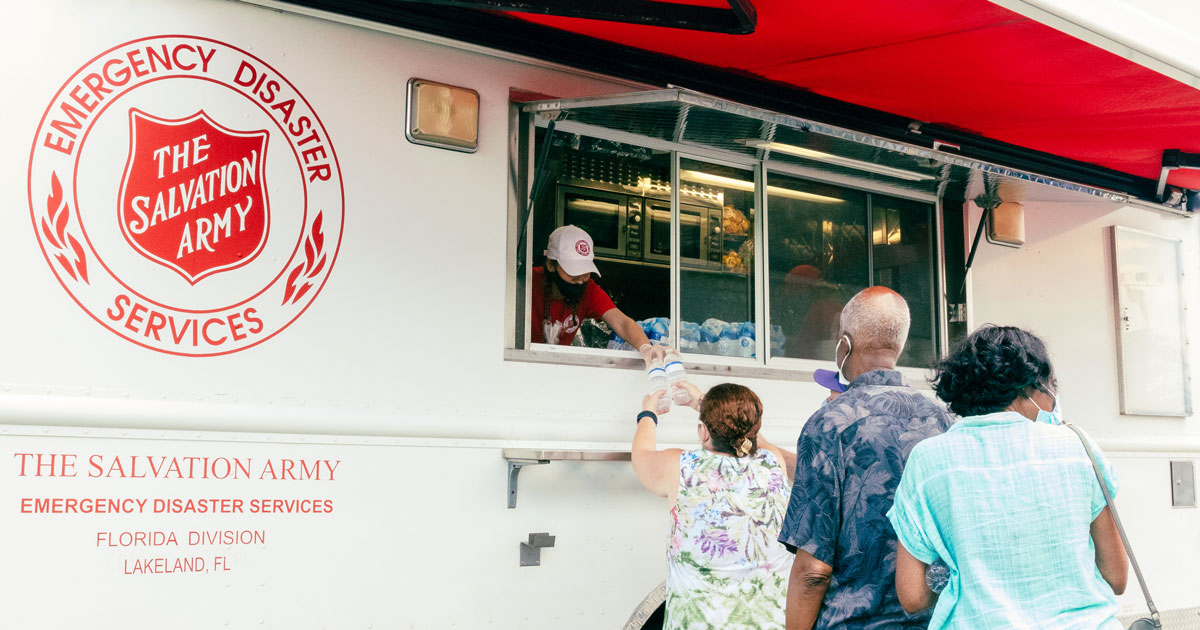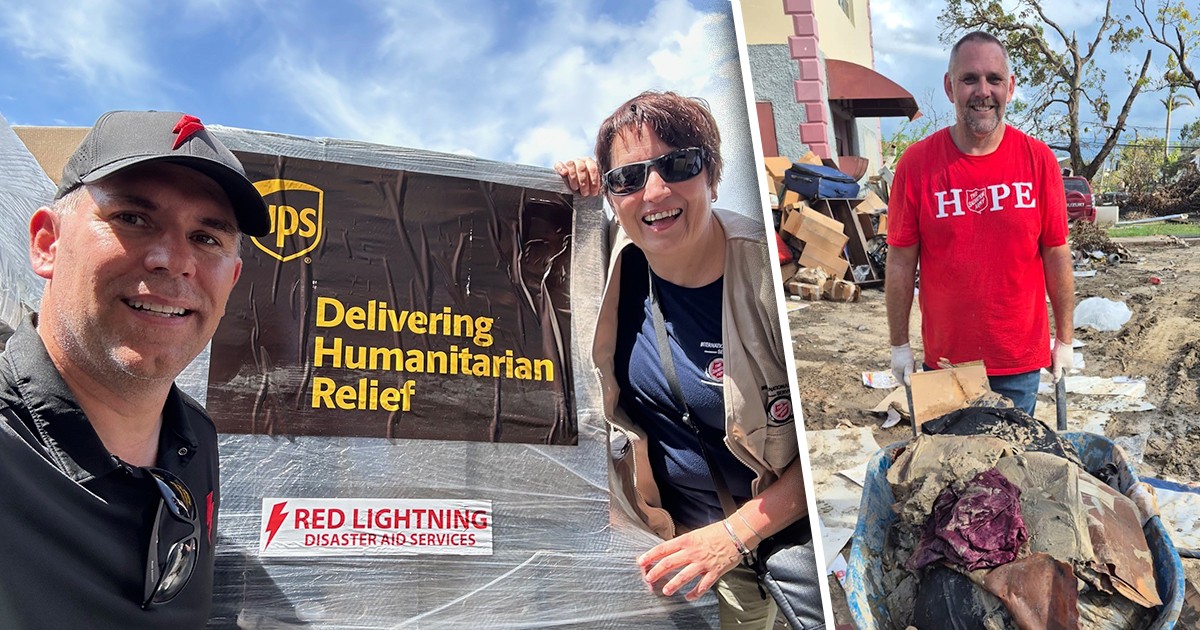In the southern states of the U.S.A., The Salvation Army is engaged in a huge response to help people affected by hurricane Ida, a category 4 hurricane which made landfall on Sunday, August 29. At the time of writing, one million people were still without power, and teams are assessing the damage caused by high winds and flooding.
"Power is still out in Louisiana and many parts of Mississippi and now the states are experiencing rising temperatures," says Jeff Jellets, Emergency Disaster Services Director of the U.S.A. Southern Territory. "Despite these hurdles, we are continuing with our mission to provide relief to as many survivors as possible. Our teams are equipped with supplies, food and water and are prepared to provide emotional and spiritual support to our neighbours."
By the end of August 31, 140,000 meals were already prepared for distribution and 38 mobile feeding units are now in place, with a further 17 available to travel from neighbouring states. These units, manned by trained staff and volunteers, will serve food and drinks, distribute essential supplies and provide emotional and spiritual care to survivors and first responders. For instance, 11 mobile feeding units have moved in from various locations in Texas. Alvin Migues, Emergency Disaster Services Director for The Salvation Army in Texas, explains: "We moved all units from Texas into Baton Rouge once it was safe to do so after Hurricane Ida moved through the area. The Incident Command Post is now set up and functional … Power outages present the most significant challenge at this time, but we continue to assess damage and the needs of each community."
Each mobile feeding unit can serve 500 to 1,500 meals per day, and a partnership with the Southern Baptists is ensuring that the units can work to capacity. Salvation Army mobile units, which are able to access the points of greatest need, will distribute meals prepared at three large field kitchens run by the Southern Baptists, each of which is capable of serving more than 15,000 meals a day.
As well as the mobile units, which have an understandable limit to the supplies they can carry, Salvation Army corps locations are being prepared to provide feeding and other needed support to anyone who has been affected by the ongoing difficulties.
Salvation Army disaster personnel are collaborating with federal, state and local emergency management agencies and other partners to respond to and monitor potential impacts and evolve response efforts as needed.
IHQ Communications
International Headquarters
"Power is still out in Louisiana and many parts of Mississippi and now the states are experiencing rising temperatures," says Jeff Jellets, Emergency Disaster Services Director of the U.S.A. Southern Territory. "Despite these hurdles, we are continuing with our mission to provide relief to as many survivors as possible. Our teams are equipped with supplies, food and water and are prepared to provide emotional and spiritual support to our neighbours."
By the end of August 31, 140,000 meals were already prepared for distribution and 38 mobile feeding units are now in place, with a further 17 available to travel from neighbouring states. These units, manned by trained staff and volunteers, will serve food and drinks, distribute essential supplies and provide emotional and spiritual care to survivors and first responders. For instance, 11 mobile feeding units have moved in from various locations in Texas. Alvin Migues, Emergency Disaster Services Director for The Salvation Army in Texas, explains: "We moved all units from Texas into Baton Rouge once it was safe to do so after Hurricane Ida moved through the area. The Incident Command Post is now set up and functional … Power outages present the most significant challenge at this time, but we continue to assess damage and the needs of each community."
Each mobile feeding unit can serve 500 to 1,500 meals per day, and a partnership with the Southern Baptists is ensuring that the units can work to capacity. Salvation Army mobile units, which are able to access the points of greatest need, will distribute meals prepared at three large field kitchens run by the Southern Baptists, each of which is capable of serving more than 15,000 meals a day.
As well as the mobile units, which have an understandable limit to the supplies they can carry, Salvation Army corps locations are being prepared to provide feeding and other needed support to anyone who has been affected by the ongoing difficulties.
Salvation Army disaster personnel are collaborating with federal, state and local emergency management agencies and other partners to respond to and monitor potential impacts and evolve response efforts as needed.
IHQ Communications
International Headquarters










Leave a Comment